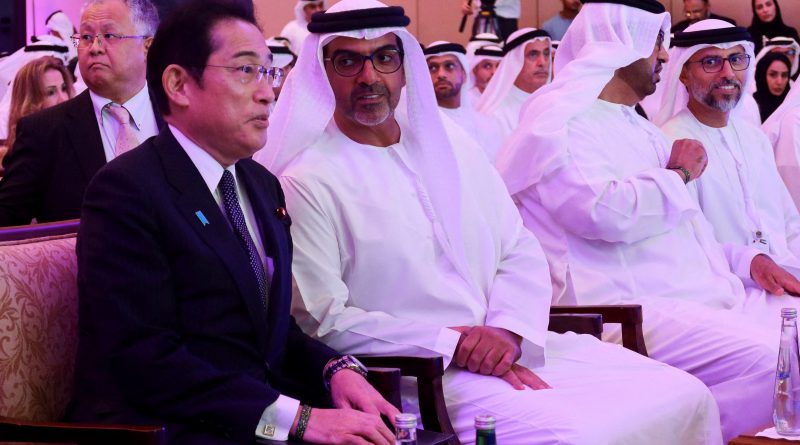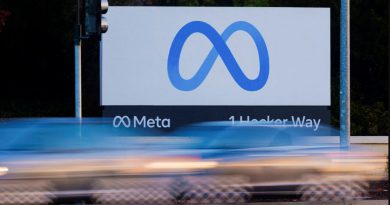Japan PM laid foundations for hydrogen supplies with Middle East trip
Tokyo (Reuters) – Prime Minister Fumio Kishida’s visit to the Middle East last week has led to a flurry of agreements for studies that Japan hopes will encourage key countries in the region to become hydrogen partners.
The July 16-18 trip to Saudi Arabia, the United Arab Emirates and Qatar, had led to some market expectations of oil and liquefied natural gas (LNG) deals. Those did not eventuate.
Instead, the trip which saw Kishida travel with representatives from 40 Japanese companies, appears to have fulfilled its stated aim of promoting cooperation in green and renewable energy.
Gulf countries are seen as well placed to form a green energy production hub due to their low solar energy production costs.
One key agreement has been a Japan-Saudi Arabia initiative called Lighthouse that aims to develop clean energy projects relating to areas such as hydrogen, ammonia and carbon recycling.
Separately, at least seven agreements, many memoranda of understanding, were signed between Japanese companies and Middle Eastern firms during the trip.
These include an agreement between JERA and ADNOC to study cooperation in clean hydrogen and ammonia and a pact between Sumitomo Corp (8053.T) and Sharjah National Oil to study the feasibility of a carbon capture and storage project in the UAE.
Other agreements covered joint studies for low-carbon metal production and future supply chain options.
“Although MOUs are obviously of lesser significance than supply contracts, touching base for future cooperation and sending a message of long-term interest in the imports of hydrogen and derivatives from the Gulf countries is important,” said Aliaksei Patonia, research fellow at the Oxford Institute for Energy Studies.
He noted that Japan has expertise in electrolysis for hydrogen made from renewable sources and pyrolysis for hydrogen production from methane.
Japan is betting big on hydrogen and has pledged to invest over $100 billion in the next 15 years to boost supply – secured both at home and abroad. It expects it will need 3 million metric tons a year by 2030, up from 2 million currently and predicts that to jump to 12 million metric tons by 2040.
It plans to use the fuel to decarbonise industries, from auto manufacturing to power plants, that currently chiefly run on fossil fuels such as coal, oil and LNG.
Hydrogen is also key to producing ammonia, which it wants to use in its fuel mix to extend the life of coal-fired plants and is a significant part of Japan’s plans to shift to clean energy.
According to the International Energy Agency, Gulf countries plan to export 1 million tons of low-emission hydrogen by 2030.
The Economic Intelligence Unit said Kishida’s trip highlights Japan’s precarious energy security situation.
“Japan will remain dependent on imports to meet its energy demand, even if it achieves success in transitioning from fossil fuels to clean energy sources,” it said in a note to clients.
Analysts also said Japan needs to strengthen its Gulf relationships if it wants to compete with China, the world’s top hydrogen producer and consumer.
“China is putting more resources into clean energy than any nation, and Japan expects competition from China in locking down Gulf supplies for the future,” said David Boling, director for Japan & Asian Trade at Eurasia Group.



